|
Growing up in the 90’s meant a lot of time with family movie nights, being ridiculously goofy before social media was a thing, and quoting some classic cartoons. There is one that stands out: Peanuts. Some of the characters include Charlie Brown, Sally, Linus, Lucy, and, of course, there is Schroeder. Although those are some of my favorites, the cast was big and the movies and episodes covered a variety of topics and seasonal fun for all. We’d sometimes quote various parts (as one does) in our regular conversations, like when Charlie Brown says, “Good Grief” anytime he is dismayed, or when Sally asks for gifts for Christmas, “Just send money, how about 10s and 20s?” The music, written by Vincent Anthony Guaraldi, is catchy and helps tell a story, plus the character that plays the piano, Schroeder, provides the friends a chance to dance to the theme song. My brother learned that song when we were kids and he played it every single chance he had - just like his favorite character Schroeder. You see, Jon Kirby was the type of musical genius that, once he learned to play piano, could hear a song and teach himself to play it. He read music, saw music, and felt music, and Peanuts songs were some of his favorites to play. Later, when he began writing music of his own, he penned something so whimsical, that it required 21 hands to play it. Every pianist who had the honor of playing it told him how fun it was to play something so silly yet jazzy, and I am certain that was some homage to Guaraldi. Tragically, my brother passed away in November of 2023 from an unexpected heart condition, and I have been grieving his loss every day since then. I am coming to terms with accepting it more as time goes on and I am seeking help for healing, but it has been hard and sad and terrible to endure. Someone full of so much life to live, suddenly gone and taken.
Grief is a weird thing, it makes people act differently and no one quite knows how to do it “right.” Am I grieving enough? Is my grieving showy? Should I take time to spend on how I am feeling or do I keep pushing through? Do I talk about it or not talk about it? How can praying help and if it helps, how will I know? What is up and what is down, and why do people care about ridiculous things when my loved one is gone? These are all thoughts and feelings one might have, and when you peel away all these questions, it reveals the sad human who has been met with an atrocious reality. There has been a tragic loss and we are sad, angry, anxious, scared, heartbroken, and scarred from it. Our mind tries to make sense of it, but we cannot. Our hearts seek answers and we are often left without any. Our bodies are here while our focus is stuck on this tragic loss and it is hard to turn our fixated selves to other things. For me in this time of grief, I have been letting myself cry whenever I need to. I have been reaching out to family and friends to talk and share stories, but where do I go from here? A friend of mine Sarah Frances, who has had her share of grief in the past decade, lost both of her parents and still maintains a life of joy and fun and work and remembering. She is inspiring. I asked what advice she had for me and I thought her words were profound: “When you lose someone it is never the right time. But one of the greatest connections that we have to every single person is that we all go through this at some point and [someone] knows almost exactly what you are feeling.” She went on to say, “It does not matter if you lose someone you love, hate, tolerate, are related to…loss hurts, but you are not alone.” You are not alone. She is right that I am not alone, even if the pain feels like no one else could understand. Some people understand. I have been surrounded by so many loved ones and friends and acquaintances who have checked in and offered support. I have heard from people who I have never met, but who knew Jon. It’s been humbling and lovely, but painful and heartbreaking too. The community that has surrounded not just me, but my dad and my sisters, and his wife and her family, is just so full of love and I cry thinking about how grateful I am for all of it. The love from others is what got me through some days, like my husband who lets me just sob some nights and I know he will always hear me out when I am having a hard time with it, comforting me with a warm embrace. Even my little 4 year old has now experienced grief, and keeps me moving forward while remembering happy times. It is all hard, but it is good to have a village to go through it with. Isaiah 41:10 says, “So do not fear, for I am with you; do not be dismayed, for I am your God. I will strengthen you and help you; I will uphold you with my righteous right hand.” This connects it all for me. I have felt Christ in so many people. I feel strengthened in knowing that I am not alone in not only my grief, but my grieving journey, my faith journey, and the people walking alongside me in life. I am seeking God and finding God in the people and the kindness, and to me, this feels like “good grief” if that could be a thing. Life is hard. We can do it. Good grief!
1 Comment
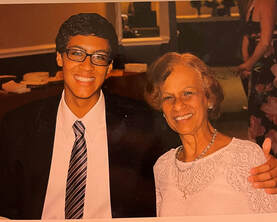
“Let us not lose the memory preserved by the elderly, for we are children of that history, and without roots, we will wither. They protected us as we grew, and now it is up to us to protect their lives, to alleviate their difficulties, to attend to their needs and to ensure that they are helped in daily life and not feel alone.” The Holy Father gave us these words last year on the inaugural World Day for Grandparents and the Elderly, inviting us to care for and journey with the elderly people we know. As our grandparents, parents, and older relatives grow older and approach the end of their lives, we take on the responsibility of caring for those who cared for us and raised us.
While there is justice in this act of caring for our elderly, it is not something cold and calculated (like our understanding of legal justice). It is founded upon the unconditional love of God the Father. Our grandparents, parents, and older relatives raised us, provided for us, and loved us without counting the cost, without expecting anything in return. In their old age, we as their children and once dependents return love for love as they now depend on us. We are called to care and provide for them and to love them unconditionally. My grandmother was pivotal in the upbringing of my sisters and I as she helped to care for us when we were young. She taught us to pray and to love others through both the example of her gentleness and sweetness and through her instructions and corrections. She would give us treats, money, and gifts all the time. She would take us out, both individually and as a group, on little dates to the movies and for lunch. I have very fond memories of volunteering at tennis tournaments with her, and an entire summer break we spent together housesitting for my great uncle in rural Northwest Virginia. When I was in seminary, she would send me gifts and notes, addressing me on the phone or in writing as “our favorite seminarian.” Signs of my grandmother’s disease that accelerated her aging came in years prior to 2020. Things took a turn for the worse that year–both before and after she was diagnosed. My mother made the difficult but beautiful decision to keep her at our family home and provide for her, and we have continued to do so. As things progressively become more difficult and she seems to be near the end, she is entirely dependent on others for her basic human needs. I have watched my mom and older sister grow in love by providing for her daily. I have been given the same opportunity when I moved back home. Although my grandmother is sometimes still reluctant to receive help and cannot always be fully present or say thank you, we give her our love unconditionally, and we know in various ways that she is grateful for our time and attention. If you have someone in your life who is elderly, especially a grandparent, parent, or relative that helped to raise you, I invite you to recognize the importance of remaining connected to them. Provide for them in the ways you are able to and give them the gift of your time and attention, regularly and intentionally. The care which our grandparents, parents, and relatives gave us in our upbringing warrants our care in return, especially when they are in need. They made a sacrifice and gift of themselves to us when we were dependent on them, and we are called to do the same. As Pope Francis reminds us, “May we never regret that we were insufficiently attentive to those who loved us and gave us life.” I believed the lie since I was small. I was only 10-years-old when my experience carved a wounding message into my heart: I would not be taken care of by anyone but myself. I was on my own. The lie ensnared me as my dad withered away. He was weak, fragile, and powerless, but it hadn’t always been that way. He had once stood like a great tree: strong, a protector who covered me with his mighty branches. By the time he was diagnosed, he had already begun to fade. I once climbed into his arms for safety, but he could no longer bear the weight of my tiny frame. When he passed, I, however unconsciously, decided that the only way to protect myself from the pain of being left alone was to choose independent solitude. “I’ve got it under control” became my most used phrase. If I refused the support and care offered to me, then I would not risk the pain of losing love when it inevitably let me down. Like a black hole, the lie swallowed me up and trapped me, even into adulthood. The birth of my first child was shadowed by the fear that he might be taken from me. Could I dare to love someone so fragile? Though my marriage is a gift of redemption, I still fought the discomfort of allowing another into the most intimate corners of my heart. I was hiding behind a thick wall of I-can-do-it-all-alone. Satan loves this wound. It is easily infected, and I was at constant risk of being overcome. The years I spent believing the lie are the same years I spent being invited to freedom in Christ by people who love me. Because of their care, I knew who He was and that He was good. I was only unsure that He was good to me. However, the years of isolation and masked strength wore me down. I was being crushed by the weight of loneliness, and I needed to be saved. So I surrendered. Carefully, I relaxed into the arms of Emmanuel. When I laid down my defense, I could see beyond the wall I had built. There was my God, and He was fighting an Enemy who cannot overcome Him. He saw me, invited me to lay my hurt at the Cross, and He cleansed me with Truth: I am the daughter of a Father who never leaves and never fails. I fight each day to remain in that Truth, remembering the ways He has fought for me and trusting that He will show up for me again. The wounding message I received is not gone, but I no longer carry it alone. I will not completely understand the role of the wounds I carry while on this side of Heaven, but I understand this: He knew that I would need to seek after Him for healing, and that when I did I would fall in love with the Healer. When I am tempted to turn away from the Lord out of my wrong belief that I stand alone, I am reminded that He designed me to depend upon His grace. As I entrust my fragile heart to God’s care, I receive His good from life’s bad. He offers better protection than the walls around my heart ever could. Romans 8:28 says, “We know that in all things God works for the good of those who love Him, who have been called according to His purpose.” Dear one, I invite you to surrender to Him. Allow him to fight for you. Get to know Him as you do. Be patient-- with God, and with yourself as He shows you how to accept love and care. The Father can and will produce goodness out of what you give Him. There is freedom in the healing. If you enjoyed this post, we invite you to read Participating in Our Own Redemption and Seeking Healing and Living in Right Relationship.
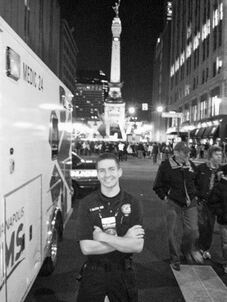 This Easter season, I have been thinking a lot about my late brother Tim, who died in an accident seven years ago - at the age of 24 - while serving as an EMT in Indianapolis, IN. Tim’s death, along with the death of his IEMS partner Cody Medley, left all their friends and families at an inestimable loss. While I never got to meet Cody personally, I have learned that he was an exceptionally driven and talented young person who also served as a fire cadet before becoming a paramedic. Tim’s story is not much different; he was an Eagle Scout and volunteer EMS before going professional and passing his paramedic certification shortly before he died. In life, Tim achieved success in almost every field. As a teenager he won academic and musical scholarships and posted regular five-minute miles in outdoor and indoor track. He mastered Mandarin and spent an immersion summer in Shanghai. He participated in a service trip to Jamaica and volunteered back home as a “running buddy” alongside students with special needs in Central Park. These successes, paired with his later commitment to the medical profession, truly made him “A Man for Others” – the Jesuit motto of his alma mater, NYC’s Regis High School. Only looking backwards have I come to appreciate how brilliant Tim was. Perhaps you have a similar person in your family – someone who is so smart that they are intimidating. Tim was fearless in challenging others (especially those in authority) when he thought they were wrong. I have thought of him throughout this entire pandemic. As a first responder, I know that he would be helping wherever help was needed. As the outspoken person he was, I know he would have choice words for those he felt were ignoring public safety protocols. And most of all, as a cuttingly funny person, I know he would help me laugh during this time. Tim died three days into Lent, on February 16th, 2013. I have remembered him especially during every Lent and Easter since then. This past Lent was perhaps the most difficult yet. Many say that it takes seven years to heal from losing a loved one. The year 2020 marks seven years for all who loved Tim. To me, I felt healing – which also meant letting my guard down to feel fully the pangs of loss I couldn’t afford to feel in 2013. The coronavirus situation, if nothing else, has clarified the relationship between life and death. We are all vulnerable humans. This can be a scary thought, but also a freeing one. This can be a time to meditate on life as what it is – a short chance to grow, love, and serve others. We do not know how long the journey will last. I sometimes think that my brother attacked life the way he did because he might have sensed that he had less time than others. He used to wake me up after midnight, for instance, after I had already gone to bed, and say “Come on bro, get up, let’s make some memories.” At the time I thought he had a screw loose. Now I think he was prophetic. Recently in the Gospel readings, we hear Jesus tell the disciples, “Peace I leave with you; my peace I give to you. Not as the world gives do I give it to you. Do not let your hearts be troubled or afraid.” These words are a balm to all of us who have experienced loss, or who fear loss during these challenging times. As I read this passage, I am touched by the care and concern Jesus shows for his followers. He is also being quite honest with them and reminding them that they will lose him. The promise of peace is made realer by the reality of loss. This is what I receive from today and feel to be true in my own life. One year after Tim’s death, on Easter Sunday 2014, my family went to Mass in a church we had never been to before. The previous year had been difficult for everyone. Personally, I had not been taking care of myself mentally, physically, or spiritually. In the prior twelve months, I had not felt anything approaching peace. I was experiencing great fear and having awful panic attacks. That morning, sitting in the pews, waiting for Mass to begin, I suddenly noticed all sound around me fade out. I felt a sensation of all the breath leaving my body – and then my next breath was a slow, purposeful breath that was like drinking cool water in the desert. I was able to begin breathing in a deep and rhythmic way. Over the next few minutes, I felt as if warm light was streaming over me, from the head down. It was a feeling of complete release and relief. Ever since, I’ve been hoping to feel that peace again. Like my brother, I doubted (and still doubt) aspects of my faith. Tim wrestled to understand people who believe that faith and the intellectual life are incompatible. Being the true original that he was, I think he found it difficult at times to imagine a place in Christianity where he fit in. Yet after his death, I learned that some of Tim’s recent writings and reflections expressed the faith of a mature man who trusted in a loving God. I reflect on his words often as I remember my “kid brother” - who responded to numerous life-or-death situations and treated severe injuries which I would be terrified to walk into. Like everything else, Tim’s faith journey happened at a rate and intensity that most of us will never know. As Easter moves on and we navigate the new normal that is COVID-19, my spiritual suggestion (for what it’s worth) is this: In your prayers, dreams, and doings, try to let fear and hope co-exist. I will try to do the same. If we can hold those two seemingly irreconcilable opposites, we may find that peace can sprout like a flower right in between our hands. The ashes of our Lenten journey were more pronounced this year—not fading with Ash Wednesday but thickening in the following weeks with the outbreak of COVID-19. Each of the plans we had for Lent—the sacrifices, the resolutions, the acts of charity—were rearranged, making room for more sacrifices than we thought possible. We sacrificed control, physical freedom, the assurance that our pantries would be stocked or that our bank accounts would be replenished. We sacrificed our physical friendships, birthday celebrations, anniversary milestones, family vacations, date nights. We’ve lost friends, family, or neighbors to a virus that until a few months ago was hardly known about or discussed. We’ve sacrificed our liturgical lives, being able to receive Christ’s Body and Blood in the Eucharist, attendance at weddings or baptisms, pastoral formation, the journey into the Church on Easter via RCIA. Pope Francis likens this pandemic to the evening storm experienced by the disciples in the boat, saying, “For weeks now it has been evening.” This evening has been long, dark, full of the unknown. Throughout this “evening,” we have had to confront our vulnerabilities and experience our littleness. We’ve had to realize that without light, we cannot see. Perhaps we’ve grappled with fear in this darkness—a fear of the unknown, a fear of isolation, a fear that the dawn may never come. Perhaps our minds have been left to imagine: Lord, “Do you not care that we are perishing?” This time of quarantine, social distancing, and pandemic has been our evening storm which, “Exposes our vulnerability and uncovers those false and superfluous certainties around which we have constructed our daily schedules…shows us how we have allowed to become dull and feeble the very things that nourish, sustain and strengthen our lives and our communities… [and] lays bare all our prepackaged ideas and forgetfulness of what nourishes our people’s souls.” We thought “we would stay healthy in a world that was sick,” but the storm has awakened us from our personal slumber. And we need light. This realization is the seed of faith—a faith which recognizes the need for salvation, for one another, for the light of God. The realization of our littleness, our helplessness, our dependence, our mortality, is the perfect place from which to enter into the Triduum and await the lighting of the Easter candle—the Resurrection of Jesus Christ. God has provided flickers of hope, reflections of grace, throughout our journey at sea: livestreams of Masses, daily Scripture reflections, broadcasts of Adoration, priests hearing Confessions in drive-thrus, virtual retreats, Pope Francis’ blessing of the entire world. We have seen a “creativity of love”--the production of ventilators in car factories, the making of masks in workplaces, the donations of money, food, and supplies across the world, the video chats to those in quarantine facing death alone. We see dancing from porch balconies. Teddy bears in windows. Embraces in hospitals. Birthday drive-bys with signs and honking. People on their knees. Yes, the light of Christ exists even in the darkness. And the darkness has not, and will not, overcome it. It will shine ablaze all the more radiantly this year in the midst of our utter darkness, sparkling in the gloom. The darker the night, the better able we are to see the light. And in the darkness, we look up. Let us welcome the light of Christ this Easter by first lighting his love in our hearts. When Christ’s life lives within us, we can enkindle it in the souls of others and set alight all we encounter. “Prayer and quiet service: these are our victorious weapons,” Pope Francis reminds us. Wake up, Lord! The disciples shouted in the midst of the storm. Wake up, Lord! The world shouts again today. Let us awaken the Lord through our prayers and service. Through our acts of charity to those suffering, tired, or scared. Through our cries and supplications. Through our fasting in these unwelcome sackcloths and seemingly perpetual ashes. Cry out with me again this Triduum, “Wake up, Lord! We are perishing.” Christ’s response to our cries this week is open arms embracing us through nails and scourging. His response to our cries is a head beaten, bruised, and crowned with thorns. His response to our cries is silence to jeers, taunts, mockery, and abandonment. His response to our cries is the relinquishing of his spirit in atonement for our sins and those of the whole world. He who cried out to his Father, “my God, my God, why have you forsaken me?” also knows the darkness intimately. He knows what it feels like to be alone and perishing. But by his words do we find the light: “Why are you terrified? Do you not yet have faith?” ….“My Father…not as I will, but as you will.” Our cries are never unheard. “The Lord awakens so as to reawaken and revive our Easter faith,” Pope Francis said. “We have an anchor: by his cross we have been saved. We have a rudder: by his cross we have been redeemed. We have a hope: by his cross we have been healed and embraced so that nothing and no one can separate us from his redeeming love.” The goal of our Lenten journey is transformation—to be transfigured. This is also our prayer throughout this pandemic. Yes, we pray that it ends, that healing comes, that daily life can resume, that economies will be restored, and that suffering will cease. But even more than all of that, we pray for transfiguration. Because when we are transfigured by the love and light of Christ, when our faith has awakened and we have realized our need for salvation, then the storm can rage on while we rest knowing we will not perish—for we will know deep in our hearts that with the “dawn there is rejoicing.” Then, and only then, “In the silence of our cities, the Easter Gospel will resound.” For more Easter and Lenten resources, please click here. For more resources and reflections on COVID-19, please click here. My grandmother passed today. In her last few days, she told her nine children, “I remain in the will of God. God’s will is love and mercy. What do I have to fear?” In a word, she got it. She got what life was all about: she had a friendship with God that helped her to understand his identity and to recognize death as the vehicle that would bring her eternally to him. The grace with which my grandmother understood her last days is uncommon. Death usually seems to surprise or horrify. We don’t think about it too often in our culture, either because it makes us uncomfortable or we’re often focused on earthly things. As a teenager, I experienced a lot of family deaths in a short period of time. During an incredibly formative period, I attended many funerals, said many prayers, visited several hospitals, and travelled often unexpectedly. Life seemed incredibly uncertain and precarious, and I found myself often asking, “Who’s next?” Death was real, and it seemed to be everywhere. Though I felt like an adult at the time, I was still unable to comprehend the greatness and depth of what was occurring. It is normal for human beings to dislike death. Death is ugly, unnatural, and uncompassionate. It visited my grandparents, aunt, and cousin. It tried to visit my own father. In those teenage years, death and I were at war. It took my relatives and did not ask my permission. As a method of self-preservation, I attempted to turn off my feelings and approached life with a blasé attitude. If it was all going to end, I thought, then what was the point? What was the point of feeling if feelings are heartache and tears? What was the point of getting too close to someone who would ultimately slip away? It was an immature but perhaps understandable reaction for a teenager. And since then, it has taken many years for me to be able to “feel” again and understand death’s role in the spiritual life. If we start researching the saints and their perspective on death, we quickly find a completely different understanding of death than the one the world gives us. “Tomorrow will be a wonderful day” Blessed Solanus Casey said to a fellow priest, prophesying his own death the next morning. He and many of the saints saw death as a friend, a door, a wedding banquet, a bridge welcoming man into reality—eternal life. “Death is no phantom, no horrible specter as presented in pictures,” Therese of Lisieux said. “In the catechism it is stated that death is the separation of soul and body, that is all! Well, I am not afraid of a separation which will unite me to the good God forever.” The saints also understood that life on earth is a pilgrimage, not our final destination. As a girl, Therese of Lisieux found inspiration in the quote: “The world is thy ship and not thy home.” We are pilgrims on a road hopefully leading back to God. Every decision we make leads us either closer to this end or farther from it. I believe mankind has such an aversion to death because we were not created for it. In the beginning, death did not exist. Death was the consequence of sin: separation from God. In order to not leave us in this state of separation permanently, God worked throughout time and intervened in human history in order to bring mankind back to himself in a state even greater than we experienced prior to the Fall. He now invites us to share in his very life—the trinitarian life of love, of complete gift of self—in heaven which “is the ultimate end and fulfillment of the deepest human longings, the state of supreme, definitive happiness” (CCC1023). Because of God’s work throughout salvation history culminating in the Passion, death and Resurrection of his Son, death no longer is the last word. As Paul wrote to the early Church in Corinth: “Death is swallowed up in victory. Where, O death, is your victory? Where, O death, is your sting?” The sting of death is taken away—transfigured. God took the ugliest and most unnatural consequence of sin and transformed it into the passageway that leads us back to him. This is the Christian perspective of death, what the saints understood, but what we have such a hard time truly grasping. We often only see the life taken too soon, the pain and suffering of the dying, the wrinkles, the tubes, the bloodshed. Christ offers us more: resurrection, transfiguration. St. Paul says that if we but understood the eternal, we would willingly suffer on earth—calling tribulation “momentary light affliction.” He says, “We are not discouraged…although our outer self is wasting away, our inner self is being renewed day by day. For this momentary light affliction is producing for us an eternal weight of glory beyond all comparison, as we look not to what is seen but to what is unseen; for what is seen is transitory, but what is unseen is eternal.” 1 Cor 4:16-18 I believe my grandmother, in her final days, understood what St. Paul and the saints did: death was simply the vehicle that would bring her into the loving arms of the Father. She understood God’s identity in two words—love and mercy—and surrendered to this truth in order to live eternally in God’s love. I look to her example and see incredible strength and faith, and I pray, as I visit her tomb in Mexico, that I can have the grace to remain in God’s will and see death as a momentary light affliction producing an eternal weight of glory beyond all comparison. “She competed well; she finished the race; she kept the faith” (cf 2 Tim. 4:7). May we all do the same. On November 2nd of each year, Catholics observe The Commemoration of All the Faithful Departed, also known as All Souls Day. We are encouraged to pray for the dead and to remember our loved ones who have gone before us. Our prayers for these souls assist in expediting the “process of purification.” The Church recognizes that few people achieve perfection in this life (after all, we are human!), and therefore, go to the grave with remaining traces of sinfulness; a period of purification is necessary to prepare the soul to join God. The Catechism of the Catholic Church explains, “All who die in God’s grace and friendship, but still imperfectly purified, are indeed assured of their eternal salvation; but after death they undergo purification, so as to achieve the holiness necessary to enter the joy of heaven.” This is called Purgatory. It is important to recognize that Purgatory is not a state of punishment, but rather a cleansing very much like our Baptism. Think of it this way: Purgatory makes the soul perfect forever! Our prayers for the deceased put their souls in the HOV lane to complete purification and unity with God—pretty awesome! In remembering our deceased loved ones on All Souls Day, it is common for people to visit cemeteries and decorate grave-sites. For this reason, this feast day reminds me of my grandfather, Sal, or as I call him, Pa-pa. Pa-pa was not exactly a church-going Catholic until the last year or so of his life, but he religiously honored and prayed for the dead by visiting the cemetery of our relatives and planting flowers, placing wreaths or palm. Today, my mom, her two sisters and their husbands continue Pa-pa’s tradition of visiting the cemetery and decorating the grave-sites of all their loved ones several times throughout the year. I make an effort to join them at least once a year to pay tribute to my relatives and to follow my grandfather’s example of acknowledging those who have gone before us. I will never know why Pa-pa did not attend Mass with my grandmother for much of his adulthood, but something drew him into church towards the end of his life. Perhaps he knew his time was approaching and he found solace with the Lord. This year, I will be praying for all of my deceased loved ones, but I will be thinking especially of my Pa-pa with great hope. Be sure to reflect on the memories of your loved ones. If you can, make some time to visit a cemetery, light a candle and attend Mass this All Souls Day. *This post was originally published here and was used with permission.
"The joy of love, the answer to the drama of suffering and pain, the power of forgiveness in the face of an offence received and the victory of life over the emptiness of death" (Porta Fidei, 13)
Death is often something that we do not like to discuss, especially in the context of the New Evangelization. These two concepts might seem like they don’t mix well, but I hope to show how they are. It is quite natural that we try to deflect the topic of death and dying and why we do not want to face the reality of a difficult situation. But, when death comes into our lives we have no control and it is something that we must handle. After the wake and the funeral are over, and the family goes home, the void is sill there. The sense of loss does not want to go away and it seems like we cannot move on from the loss. On March 7th, I went though this pain for the fourth time this past year with the passing of my paternal grandfather and namesake. I lost two grandfathers, a cousin, and a close family friend who I consider more like an uncle. Each of these individuals have greatly impacted my life and I would not be who I am without them. Recently I have done a lot of reflecting on what these lives have meant to me. Time and time again I go back to the number of lessons that my grandfathers' have taught me. They taught me some of the classics like fishing, a love for music and art, gardening and the importance of a good cup of British Tea or Italian coffee. But it was not these lessons that are the most import that matter. These two men also taught me the importance of family, tradition, love, and faith. My maternal grandfather was a great lover of music; he was singer and a violinist. He introduced me to the Masses written by Mozart, Beethoven, and Verdi. Through his love, he showed me how music can represent a love for God and his creation. Music has come to affect my life and how I pray to God. He broadened my horizons and taught me about musical tradition that dated back centuries, and his love for this went far beyond the music itself. It helped one transport oneself to become close with God. My paternal grandfather taught me two different aspects of faith: a devotion to Mary and the importance of service. He suffered from Alzheimer's disease, which caused great pain and eventually an almost complete loss of memory. There were only four things he could remember before he passed away; his brother, his wife (my grandmother), his personal motto, which was “great and grateful no matter what”, and how to pray the Hail Mary. His devotion to the Blessed Mother was a quiet one. His service to others was like his devotion, a quiet one. He was just as happy serving on a board of trustees or picking up trash at the church picnic as long as it helped others. On the night before my paternal grandfather's funeral, one of our parish priests began the prayer vigil. He offered a short reflection on what this meant and there was a part of it that has stuck with me. This young priest said that our relationship with the dead was not over, but rather was changed. The relationship was now through the eternity of Jesus Christ. Our faith teaches us that Christ connects us regardless of time and that life continues after death. The New Evangelization is a reminder of this hope and comfort. Pope Emeritus Benedict got this right in Porta Fidei, it is the joy of love that conquers death and gives us hope. This hope is found in our faith, and fills the void from the loss. While the sting of death will always be present, it is Christ, who walks with us at every step, who takes away the sting and returns our capacity to love one another. Pat Fricchione is the Research and Production Associate for the Catholic Apostolate Center “For in hope we were saved. Now hope that sees for itself is not hope. For who hopes for what one sees? But if we hope for what we do not see, we wait with endurance.”
-Romans 8:24-25 (full passage found here) In this passage and throughout his letters, St. Paul directs us through (not around) the darkness of suffering into the great light of faith that brings hope to those who know and love Jesus Christ. In his letter to the Philippians, he urges us to offer everything, especially our sufferings, with the hope of conforming our lives to Christ’s own sufferings so that we might in turn be conformed to His resurrection. “For creation awaits with eager expectation the revelation of the children of God; for creation was made subject to futility, not of its own accord but because of the one who subjected it, in hope that creation itself would be set free from slavery to corruption and share in the glorious freedom of the children of God.” - Philippians 3:8-10 My wife and I recently suffered through the pain-filled loss of a miscarriage. When we first heard the news we were absolutely devastated, heart-broken to say the least. Living through this experience, made me painfully aware of the fragility of life, especially life in the womb. In fact, later that evening I was scheduled to direct a pro-life youth rally for the 40 days for life. I couldn’t fathom how someone would actually voluntarily take a life from the womb of its mother. I believe this experience has caused me to suffer twice as much heart ache. I am terribly saddened because of our loss and terribly saddened because of the realities of abortion. With nothing save our Faith to comfort us and in holy surrender, my wife and I offer up our baby’s life for the conversion of hearts, especially for those considering abortion. A few weeks ago, I was praying across the street from a Planned Parenthood abortion facility when I noticed a young woman sitting in her car that was parked next door in front of the pro-life pregnancy resource center. However, I knew on this particular day of the week, the center was closed so I wondered who she was and if she needed help. After a brief interior struggle as to whether or not I should approach her car and speak with her I started walking towards her. I had been to Mass earlier that morning and I remember asking our baby, whom we named “Charlie,” to intercede for women in crisis pregnancies. I didn’t put two and two together while I was experiencing all of this but my prayer was about to be answered. The young woman in the car was in crisis and nobody, except me (and Charlie), was around to help her. I introduced myself, told her who I was (pro-life advocate) and that I was there to help her find the assistance she needed. I was able to lead her to another resource center that was nearby and assured her that there were people in this community that would be with her and support her every step of the way. I thanked her for choosing Life! For St. Paul, it is through the great acceptance of or rather surrendering to (and patiently enduring) life’s suffering, that we obtain the imperishable and eternal crown of victory (c.f. 1 Cor 9:25); a victory in his faith-filled eyes incomparable to the passing experiences of a lifetime no matter how grave. For it is true, no-thing compares to the glory that awaits us; for eye has not seen and ear has not heard what God has ready for those who love Him (c.f. 1 Cor 2:9). Bart Zalvetta is a member of the Theology Department of Skutt Catholic High School in Omaha, Nebraska |
Details
Archives
July 2024
Categories
All
|
About |
Media |
© COPYRIGHT 2024 | ALL RIGHTS RESERVED



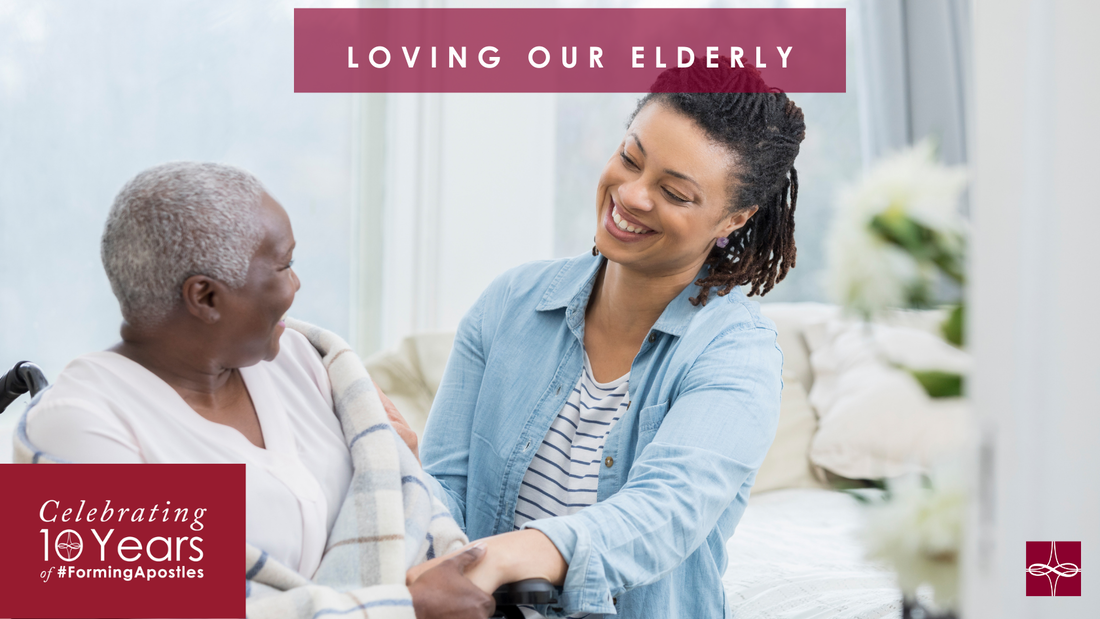
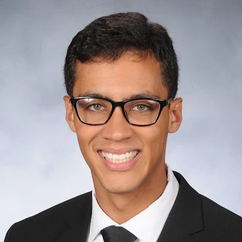
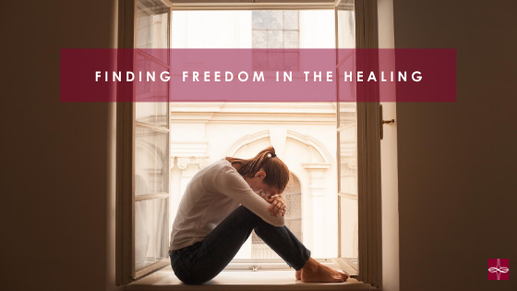

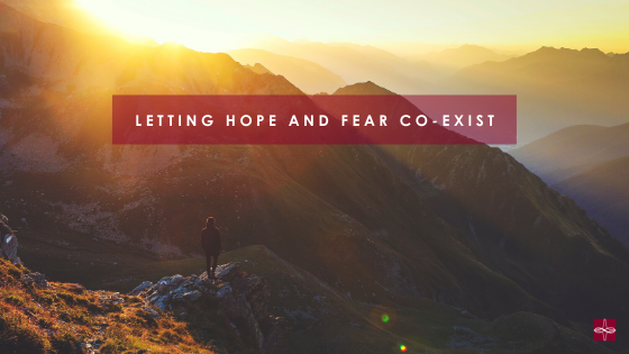

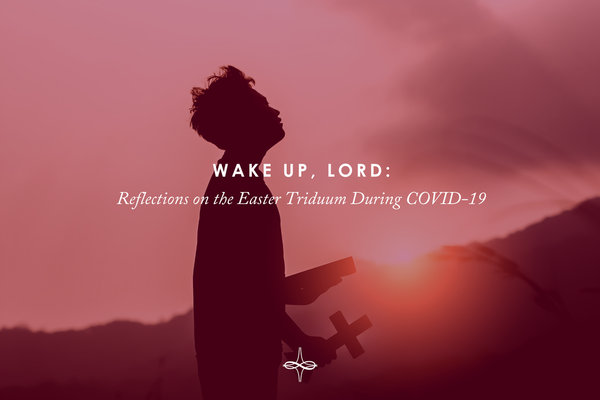

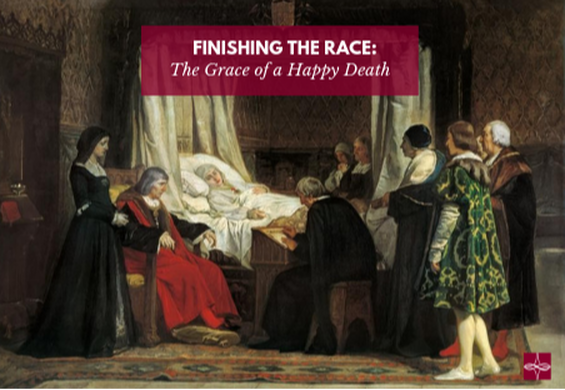

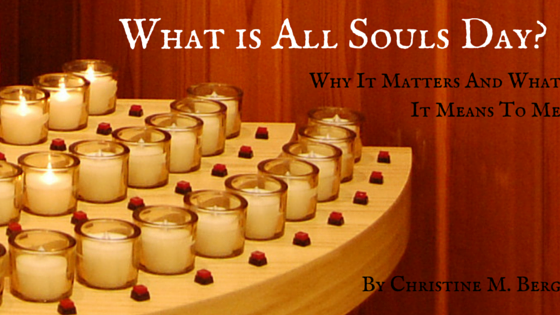


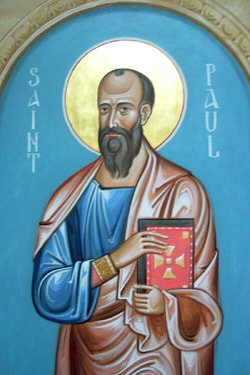
 RSS Feed
RSS Feed